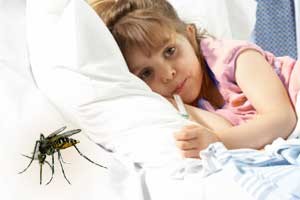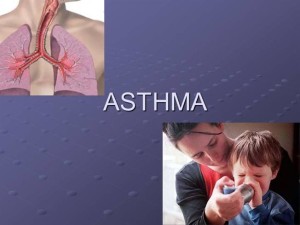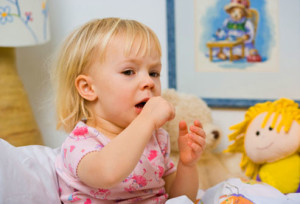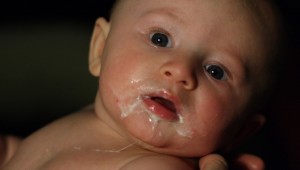FEVER

Kiss or touch your baby’s forehead. If you think he feels hotter than normal, you’re probably right. A higher-than-normal body temperature is called a fever. A fever is usually a sign that the body is waging a war against infection. Taking your baby’s temperature can confirm your suspicions and help you and your child’s doctor figure out the best way to get your baby back on the road to health.
VOMITIING
There are different types of vomiting, including: Regurgitation – this is when your baby vomits up small amounts after a feed. Reflux – this vomiting is common in babies. It is caused when the valve at the top of the stomach accidentally opens. The contents of the stomach come back up the food pipe (oesophagus) slowly. Reflux does not harm babies. They usually grow out of it by the time they are walking. Projectile vomiting – this is when your baby brings up the stomach contents in a forceful way. The amount of milk or food can seem large on the floor, but is usually only the amount of the last feed. Babies may projectile vomit occasionally, but if it happens after every feed, see your doctor right away as it may be due to a blockage caused by thickening of the muscle at the outlet of the stomach.
FEEDING PROBLEM  Feeding problems occur for a number of reasons, many of which vary according to age. Most of these challenges can be met through proper breastfeeding instruction from a nurse or lactation specialist and the natural development of a breastfeeding rhythm. It may come as a surprise, then, if your baby develops a resistance to feeding weeks or even months after you thought this was no longer a problem.
Feeding problems occur for a number of reasons, many of which vary according to age. Most of these challenges can be met through proper breastfeeding instruction from a nurse or lactation specialist and the natural development of a breastfeeding rhythm. It may come as a surprise, then, if your baby develops a resistance to feeding weeks or even months after you thought this was no longer a problem.
POOR WAIT GAIN  During infancy and childhood, children gain weight and grow more rapidly than at any other time in life. However, some children do not gain weight at a normal rate, either because of expected variations related to genes, being born prematurely, or because of under nutrition, which may occur for a variety of reasons. Under nutrition is sometimes called a growth deficit or failure to thrive. It is important to recognize and treat children who are not gaining weight normally because it may be a sign of under nutrition or an underlying medical problem that requires treatment. Under nutrition can have complications, such as a weakened immune system, slower than expected linear growth, shorter than expected height, or difficulties with learning. These complications are more common in children who are undernourished for a long period of time.
During infancy and childhood, children gain weight and grow more rapidly than at any other time in life. However, some children do not gain weight at a normal rate, either because of expected variations related to genes, being born prematurely, or because of under nutrition, which may occur for a variety of reasons. Under nutrition is sometimes called a growth deficit or failure to thrive. It is important to recognize and treat children who are not gaining weight normally because it may be a sign of under nutrition or an underlying medical problem that requires treatment. Under nutrition can have complications, such as a weakened immune system, slower than expected linear growth, shorter than expected height, or difficulties with learning. These complications are more common in children who are undernourished for a long period of time.
Diarrhea  A baby’s bowel movements normally come in different textures, colors, and odors based on what the baby is eating (breast milk, formula, or solid foods). A baby’s stool is normally loose compared to an adult’s. A loose stool once in a while is not uncommon. However, if bowel movements suddenly become much looser or more watery, frequent, and profuse, it may be diarrhea.
A baby’s bowel movements normally come in different textures, colors, and odors based on what the baby is eating (breast milk, formula, or solid foods). A baby’s stool is normally loose compared to an adult’s. A loose stool once in a while is not uncommon. However, if bowel movements suddenly become much looser or more watery, frequent, and profuse, it may be diarrhea.
ASTHMA  Have you, or someone you know, been diagnosed with asthma? If so, you probably have lots of questions. You may wonder, for example, just what asthma is. The medical definition of asthma is simple, but the condition itself is quite complex.
Have you, or someone you know, been diagnosed with asthma? If so, you probably have lots of questions. You may wonder, for example, just what asthma is. The medical definition of asthma is simple, but the condition itself is quite complex.
COUGH  Coughing is a reflex that keeps your throat and airways clear. Although it can be annoying, coughing helps your body heal or protect itself. Coughs can be either acute or chronic. Acute coughs begin suddenly and usually last no more than 2 to 3 weeks. Acute coughs are the kind you most often get with a cold, flu, or acute bronchitis. Chronic coughs last longer than 2 to 3 weeks. Causes of chronic cough include Tuberculosis.
Coughing is a reflex that keeps your throat and airways clear. Although it can be annoying, coughing helps your body heal or protect itself. Coughs can be either acute or chronic. Acute coughs begin suddenly and usually last no more than 2 to 3 weeks. Acute coughs are the kind you most often get with a cold, flu, or acute bronchitis. Chronic coughs last longer than 2 to 3 weeks. Causes of chronic cough include Tuberculosis.

